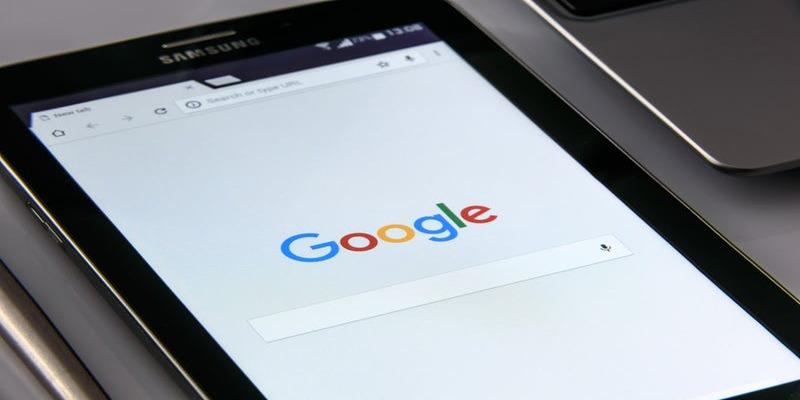Google IPO Banker's Journey: From Silicon Valley to $2 Trillion
Sep 22, 2024 By Vicky Louisa
Google has changed millions of people's ways of using the Internet. Moreover, after growing rapidly since 1998, it currently handles over 70% of global internet search queries. In 23 years, Google has expanded from an online search firm to over 50 internet services and products.
Google's Impact on Society

Democratizing Access to Information
Google's objective is to organize the world's knowledge and empower people worldwide to locate and utilize it. Pressing a few keys lets people learn and remain informed for life. Moreover, Google and Silicon Valley News can be major learning aids.
Innovations in AI
Google's AI advancements have generated groundbreaking ideas. From Waymo's self-driving vehicles to Google Helper, a virtual personal assistant, Google's AI-powered technologies are transforming industries and pushing the envelope.
Bridging Language Barriers
Translating languages has always been challenging, but Google Translate, another great company tool, has solved this. This tool lets people translate text, papers, and even whole websites into other languages, removing language hurdles and improving contact between people from different cultures.
Google IPO Banker's Journey to 2 Trillion
The 2004 Google IPO in Silicon Valley was led in large part by Michael Grimes, a banker at Morgan Stanley. Many buyers were careful as the market recovered from the dot-com crash, but Google chose an unusual Dutch auction plan that let more people join. This one-of-a-kind method made the process more open to everyone, ensuring that bids were given out based on price and size instead of establishment choice.
As an example of their vision for Google as an innovative and welcoming company, Larry Page and Sergey Brin wanted to level the playing field when they started the company. Through IPO banking, Google's transformation from a young company to a major player illustrates industry growth.
Google IPOs had a $27 billion market cap and a $85 starting share price. Its value rose 7,600% to $2 trillion in 2024. Alphabet's Google dominates advertisements, cloud computing, AI, and self-driving tech. Additionally, Grimes became a "Silicon Valley whisperer" and ushered in Big Tech dominance. Moreover, IPO banking has been central to Googles evolution, highlighting the significance of strategic financial expertise.
Reason Why Google Is Successful

Tames Information
Google's original business was making algorithms that would help people quickly look through the huge amount of information that was being posted online at the time. Search engines like Google stopped hiring writers and researchers to handpick links for specific questions. Instead, they started making algorithms that scored the content they were collecting based on certain criteria.
These included both new ideas, like direct links from reputable sources, and old-fashioned ones, like keyword usage and page names. Moreover, an individual Page Rank was created from all of these parts and determined where a website would appear on a search query.
Due to this scoring system, Google was able to provide more accurate results than many of the search engines that came before it. The formula was and still is constantly changing to give people the best results. Google quickly became the most popular search engine on the Internet because it started strong and kept getting better.
Monetizing Search through AdWords
Google has used the same method for all of its products since the start of the search algorithm and has had multiple updates since then. Although Google was good at making prototypes and making things better, they weren't making a lot of money at first, even though their search page was the best on the market. Three years after it started, Google took the first step toward making money off of its search dominance by launching Google AdWords.
While AdWords was still using the cost-per-thousand (CPM) strategy, which meant that marketers paid for views instead of clicks, it wasn't impressive at first. As it did with the search engine algorithms, Google started to change and improve the AdWords program. Moreover, following AdWords, Google released Adsense, which lets anyone with a website access its advertising inventory. This made Google the clear leader in digital advertising.
Major Digital Powerhouse
Google started to really come up with new ideas once they had ads to go with them. For example, Google published and bought digital assets that would bring in more ad-based income as traffic increased and more ad area as content increased. These included YouTube (purchased in 2006), Google Maps (2006), Blogger (2003), and Google Finance (2006).
Google also created several websites and apps that weren't originally meant to make money from ads. These include Google Books, an online library of books with few ads. Similarly, it's hard to find ads on Google News and Silicon Valley News, which gather up-to-date news from thousands of sources in real-time.
Gmail (2004) used to be free and non-ad supported, but later versions let users choose between free with ads and paid without ads. When these sites were first made, they were not at all perfect. Google released test versions and then let users choose which changes should be made to the next version.
Source of Innovation
Google continues to increase its ad income and upgrade its websites and services. Many of us don't recall life before recommendations and speedy results, and Google Maps seldom contains a hard-to-find location. Businesses often improve their finest products. Google's success story is more compelling because of its relentless innovation.
Google values creativity and encourages its employees to think creatively. The Silicon Valley news also states that Google has started making wearable gadgets, mobile operating systems, driverless automobiles, and renewable energy. Moreover, the two-decade IPO banking journey underscores the dynamic nature of Silicon Valleys influence on global business success.
Google doesn't care about money anymore since it has plenty. Its corporate culture prioritizes fresh ideas over generating money. Google AdWords makes it simple to generate money from a product if enough people desire it. That is how Google multiplied its Google IPO to become worth 2 trillion today through limitless hard work.





